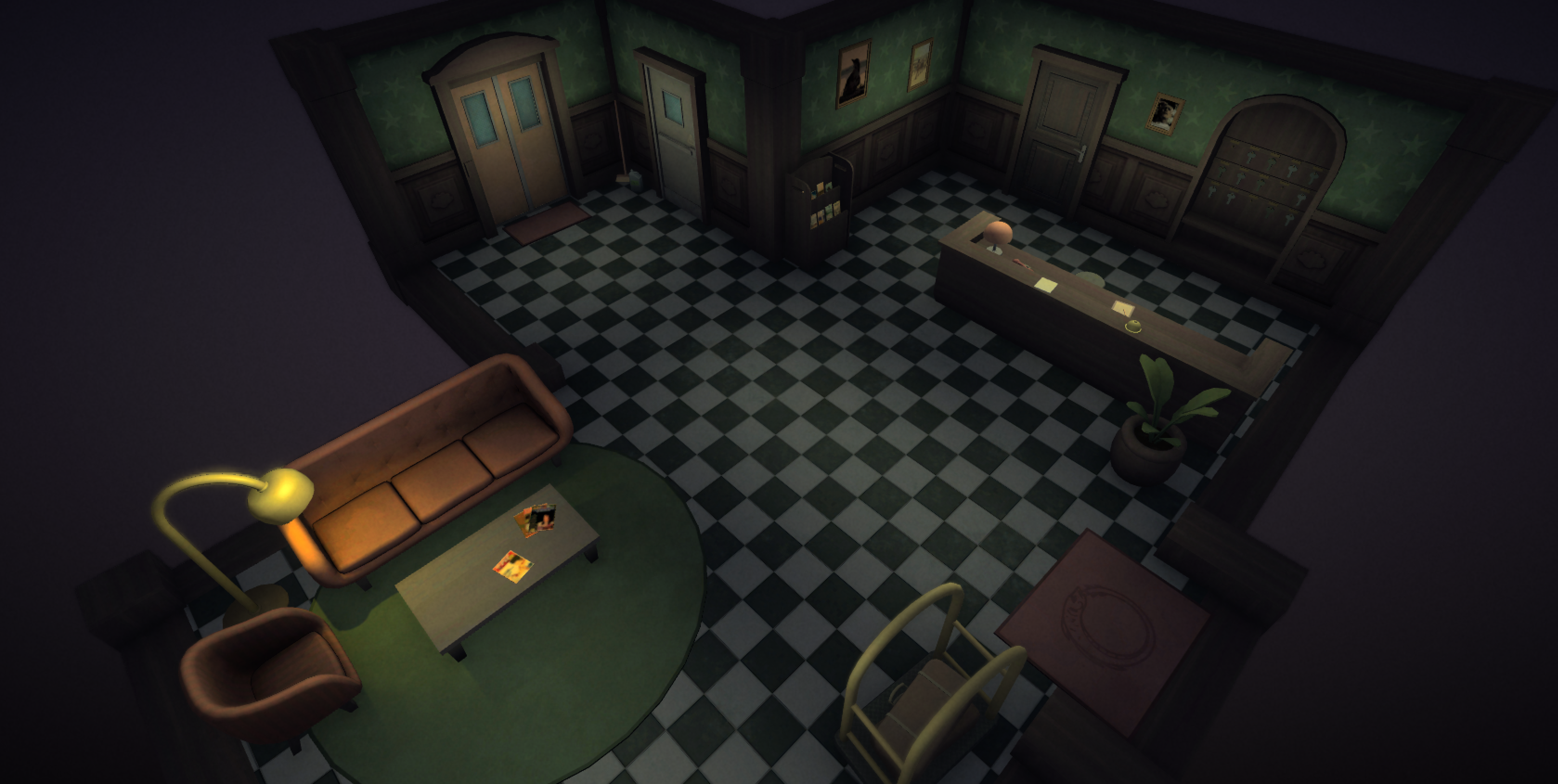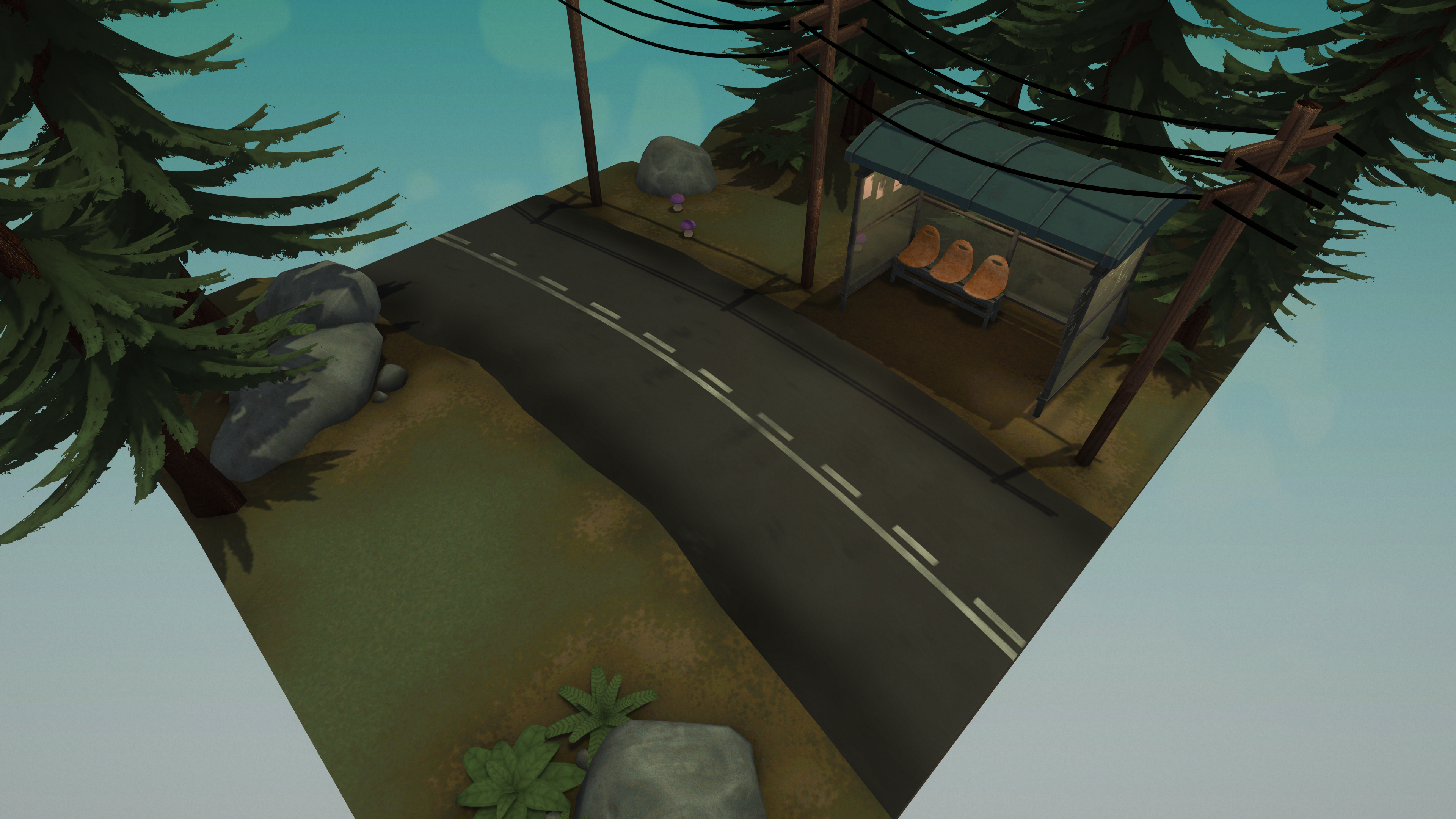A Game That Will Never See the Light of Day
After months of work on our game “Solen” —we’ve decided it’s too risky to continue.
 Solen’s hotel lobby
Solen’s hotel lobby
What was Solen?
Solen was intended to be a narrative adventure game where the player took on the role of a manager running a hotel in a haunted seaside resort. The game combined hotel management elements with investigation mechanics, as players unraveled mysteries about the spirits haunting the resort and the mysterious disappearance of the previous manager.
However, Solen didn’t always have this storyline. It went through several transformations before settling on this premise, which finally felt like it worked. The project itself was built on remnants of another abandoned project, which proved to be a fundamental mistake. This approach limited us right from the start, as we had to “recycle” elements from the earlier project and make them fit. As a result, many aspects of the game kept breaking and were patched together with makeshift solutions in an effort to create something cohesive.
In the end, despite the significant effort poured into it, we decided to shut the project down.
What We Learned
-
We aimed too high. Like many new teams, we started with an overly ambitious vision. We wanted a game that combined management and investigation mechanics, but with few references for this combination, we struggled to find a formula that worked.
-
We recycled what should’ve been scrapped. As I mentioned earlier, Solen was built on the foundation of another project, which we tried to recycle as much as possible. This was a major, limiting mistake that prevented us from establishing strong pillars for the game.
-
We had too many systems at once. With so many interconnected mechanics, proving they all worked together required complex, time-consuming prototypes. These prototypes offered no guarantees that publishers would bite—or that the effort would ever pay off.
-
We’re just two people. While we handle a wide range of tasks between us, we’re a small, part-time, unfunded team. Tackling a project of this scale simply wasn’t realistic. Our limited time and resources made it clear we needed smaller, more focused projects to work efficiently.
-
We didn’t know when to stop. The more time you pour into a project, the harder it is to let go. It’s easy to convince yourself a solution is just around the corner, so you keep pushing, sinking more time and effort, and a vicious circle sets in. Walking away feels like losing everything, even though the lessons learned are invaluable, that’s why we’ve put blinders on for too long.
 Solen’s bus stop
Solen’s bus stop
In Summary
While we’ve worked in studios and created games during game jams, this was our first time handling every aspect of development for a larger, commercial project, in a small two-person team. It gave us the skills and insight to approach future projects with a clearer, more realistic perspective.
The decision to stop wasn’t an easy one, especially for me. My narrative work on the characters and the world —everything tied to the “living” aspect of the game— made me feel like I was abandoning them. Imagining the void they would leave behind was impossible. It might sound intense, but for me, writing a world and its characters means having them live in my head constantly. It’s about imagining situations/conversations, and even discovering them as they sometimes evolve differently than I originally envisioned, which makes them feel very real to me.
For a while, I thought about doing more with those characters — possibly turning them into a visual novel. I wrote a few dialogues between them, mostly for myself, just to explore their voices and dynamics. This helped me process the end of the project. I wasn’t quite ready to let go of these characters, and writing those scenes gave me a way to spend more time with them. The writing exercise itself gave me a sense of closure, though there will always be a part of me that thinks about this project that never happened. The atmosphere and setting I had imagined for this game are something I’m genuinely passionate about, and I hope that someday I’ll manage to create a game that captures the mood and feeling I was chasing back then.
What’s Next
We’re now working on our next project, Gloopalaxy, a way smaller game. It’s refreshing to work on a project that feels more contained. The scope is manageable, and while we still adapt and change things along the way, there’s less of that overwhelming uncertainty. It’s been nice to focus more on polishing and refining rather than questioning the fundamentals.